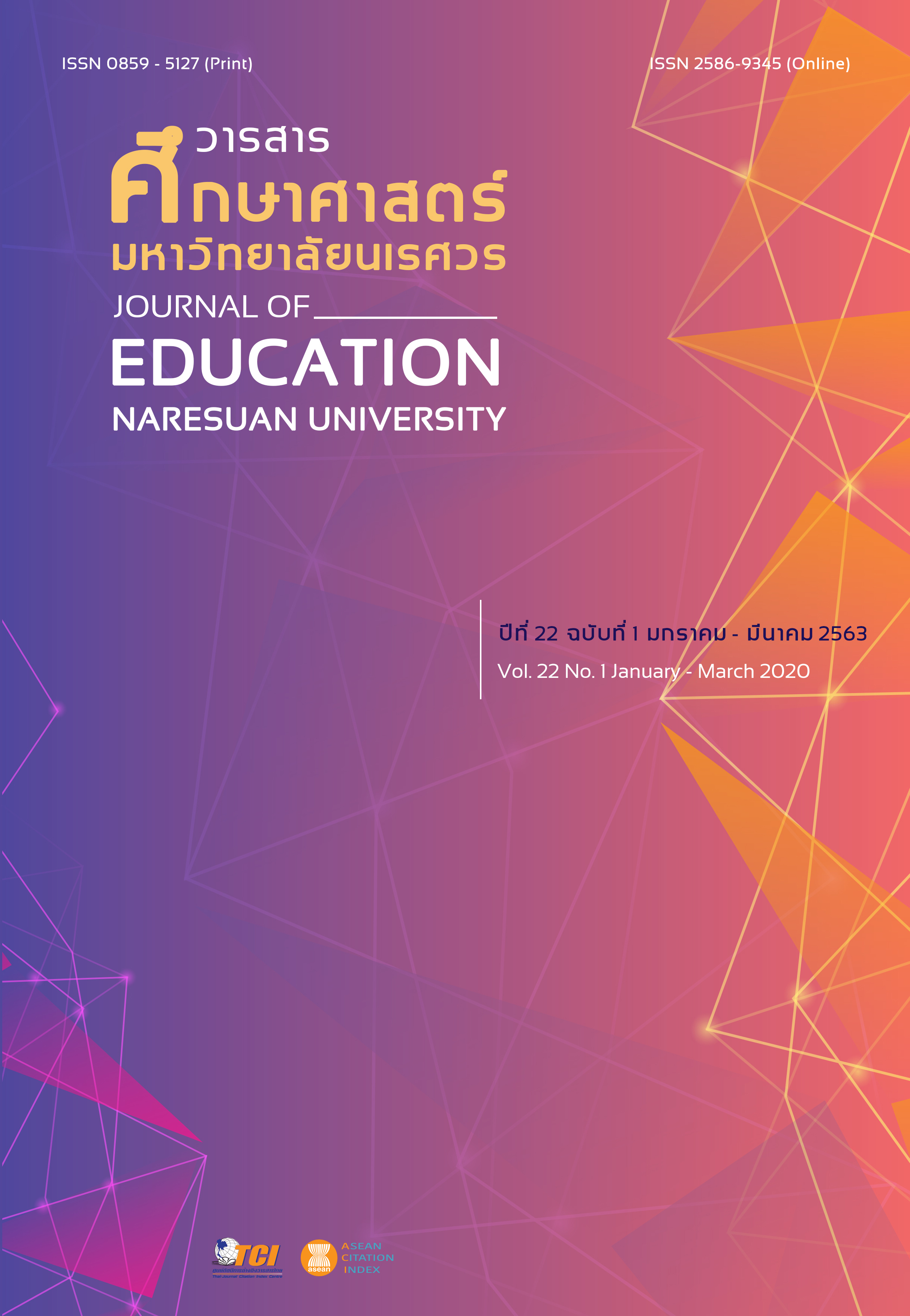THE DEVELOPMENT OF THE APPLICATION FOR BASIC CHORD AURAL SKILL PRACTICE FOR UNDERGRADUATE STUDENTS
Main Article Content
Abstract
The objective of this study were (1) to develop application for basic chords aural skill practice; (2) to investigate the result of basic aural skill from the basic aural skill practice application, comparing with the criteria of 80 percentage; and (3) to investigate the satisfaction of the sample group after using the basic aural skill practice application. The sample group in the study included 60 first-year Western Music Major students in academic year 2018, studying in the 6 higher educational institutes. The research instruments consisted of (1) basic-chord aural skill practice application and (2) the survey of users’ satisfaction on the basic-chord aural skill practice application. The study was found that: (1) the development of the application for basic chord aural skill practice including contents were tutorial, skill practice, users’ score ranking, (2) the statistical result of basic-chord aural skill from using the application was found significantly higher than the 80 percentage criteria at .01 (mean value was 17.47, 87.35 percentage), and (3) the sample group’s satisfaction on using the application was found in the highest level = 4.63 (S.D. = 0.17). According to those results, this skill practice application is one of the methods to develop aural skill and to supplement into teaching music subjects.
Article Details
The owner of the article does not copy or violate any of its copyright. If any copyright infringement occurs or prosecution, in any case, the Editorial Board is not involved in all the rights to the owner of the article to be performed.
References
Boonrod, V. (2019). The study of basic-chord aural skill of Western Music Major students in Phitsanulok. Journal of Fine and Applied Arts Khon Kaen University, 11(2), 1-25. [in Thai]
Cronbach, L. J., Schoenemann, P., & McKie, D. (1965). Alpha coefficient for stratified-parallel tests. Educational and Psychological Measurement, 25, 291-312.
Dawson, K. (2012). Using action research projects to examine teacher technology integration practices. Journal of Digital Learning in Teacher Education, 28(3), 117–124.
Herrera, J. P., & Hayes, A. G. (2014). Vodcasting and instrumental practice in secondary school music classes. Journal of Music, Technology & Education, 7(2), 163-180.
Hsu, P., & Sharma, P. (2008). A case study of enabling factors in the technology integration change process. Educational Technology & Society, 11(4), 213–228.
Kiwprasopsak, S., & Kwaengsopa, N. (2003). Insight: Visual basic. Bangkok: Provision. [in Thai]
Lehmann, A. C., Sloboda, J. A., & Woody, R. H. (2007). Psychology for musicians: Understanding and acquiring the skills. Oxford, UK: Oxford University Press.
Loh, C. S. (2007). Choice and effects of instrument sound in aural training. Music Education Research, 9(1), 129-143. doi:10.1080/14613800601128619
McPherson, G. E., & Renwick, J. M. (2001). A longitudinal study of self-regulation in children’s musical practice. Music Education Research, 3, 169-186. doi: 10.1080/14613800120089232.
Ministry of Education. (2009). The second decade of educational reform. Bangkok: The Federation of Savings and Credit Cooperatives of Thailand Limited Press. [in Thai]
Moore, J. E., & Barab, S. A. (2002). The inquiry learning forum: A community of practice approach to online professional development. Technology Trends, 46(3), 44–49.
Nithetsin, W. (2008). Media and learning innovation. Bangkok: Skybook. [in Thai]
Rees, F. J. (2011). Redefining music technology in the United States. Journal of Music, Technology & Education, 4(2 & 3), 149-155.
Salavati, S. (2016). Use of digital technologies in education: The complexity of teachers' everyday practice. Växjö: Linnaeus University Press.
Sridadech, S., Teeraputon, D., & Voravitrattanakul, P. (2016). The development of computer assisted instruction to enhance listening skills in foreign languages learning substance: Myanmar subject for language and communication for junior secondary students. Journal of Education Naresuan University, 20(4), 206-218. [in Thai]
Srisa-ard, B. (2002). An introduction to research (7th ed.). Bangkok: Suwiriyasan. [in Thai]
Suttachit, N. (2018). Music education: Principle and synopsis (10th ed.). Bangkok: Chulalongkorn University. [in Thai]
Wongrattana, C. (2010). Techniques of using statistics for research (12th ed.). Nonthaburi: Thaineramitkij Inter-Progressive. [in Thai]
Woody, R. H. (2013). Social psychology of musicianship. Delray Beach, FL: Meredith/Hal Leonard.
Wright, C. R. (2016). Aural and the university music undergraduate. Newcastle upon Tyne, England: Cambridge Scholars Publishing.


